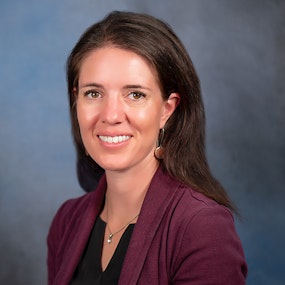ROBERT JOHNSON:
This is the award-winning Public Health Review Morning Edition for Wednesday, November 8, 2023. I'm Robert Johnson. Now, today's news from the Association of State and Territorial Health Officials.
ANNE ZINK:
I think overall, we need to put a new renewed focus on syphilis elimination, and so that's going to be both at a federal level as well as the state level.
JOHNSON:
ASTHO immediate past president and Alaska chief medical officer, Dr. Anne Zink on the need for new attention to the rising number of syphilis cases in the U.S.
ZINK:
There's a lack of attention and priority on it. I think, from a federal level as well as in the private sector and I think it just really, it highlights the gap between our systems.
JOHNSON:
Zink says physicians aren't thinking about syphilis, and public health doesn't have the resources to deal with it. She wants a messaging campaign to raise awareness among providers.
ZINK:
We need to think of syphilis, and we need to test for syphilis because if we don't, we're not going to be supporting our patients, and we're going to be missing critical diagnoses.
JOHNSON:
Zink sees five audiences for a communications effort: providers and patients are two of them.
ZINK:
The third one is policymakers and so again, that's our governors, and that's the other eyes is in that space, and the next one is the public, and the public advocacy groups and sector really make a big difference for kind of helping to accelerate change, and I think public health can lean into that space more. And then, the last one is the press, and the press plays a really important role in conversation.
JOHNSON:
Zink writes about the problem in a column published in The Boston Globe. You can read it using the link in the show notes.
Massachusetts agencies are talking about their collaboration on a Medicaid 1115 waiver. Stephanie Doyle is with the state health department.
STEPHANIE DOYLE:
The waiver really helps to go even further upstream to look at prevention, promotion, and what supports you can get in primary care, really incentivizing integrated team-based care that includes clinicians, peer recovery support specialists, family partners, community health workers, that can provide those supports within their primary care, and then get folks connected to the roadmaps system, should they need additional more long term supports.
JOHNSON:
Doyle says the health department and the state's Medicaid office MassHealth have a history of working together, which made it easier to partner on the waiver.
DOYLE:
So, as they were working on their waiver, we joined in in some of the formal ways that we could provide our input, but there were also these informal, long-standing relationships where MassHealth was learning with us along the way and thinking about the implications for policy and systems change and how that could be woven and integrated into the waiver.
JOHNSON:
Read more about the work Massachusetts and other states have done in a new ASTHO report now online; you can download it using the link in the show notes.
Also, today, states are thinking about how to partner with community health workers, thanks to CDC funding and Medicaid's 1115 waiver program. ASTHO's Shelby Rowell joined with colleague Anna Bartels to produce a technical package for members exploring ways to boost their CHW programs.
SHELBY ROWELL:
They include adopting hiring practices to promote integrating community health workers into the state and territorial public health agency, pursuing models for financial sustainability of community health workers positions, supporting infrastructure for community health worker workforce development and training, and advocating for including community health worker voices and policy development.
JOHNSON:
The package is explained in the latest edition of the Journal of Public Health Management and Practice. Rowell says it was created to fit the needs of individual states and territories.
ROWELL:
We know that every state and territory looks very different. What works in one jurisdiction may not work for another. The way that technical package is structured allows our members to be strategic and adopting practices that are achievable and measurable based upon the needs of their agencies in the community health worker workforce.
JOHNSON:
You can read more about the CHW technical package using the link in the show notes.
Finally, this morning, ASTHO has two job openings. The organization is looking for a Senior Analyst of Performance Excellence. It also wants to hire an Advisor of Public Health Data Modernization and Infrastructure Sustainability. You can get more information clicking the links in the show notes.
Before we go, we'd like to remind you to follow this newscast on your podcast player and ASTHO on social media. We're on LinkedIn, Twitter, and Facebook. That'll do it for today.
We're back tomorrow morning with more ASTHO news and information. I'm Robert Johnson. You're listening to the award-winning Public Health Review Morning Edition Have a great day.







